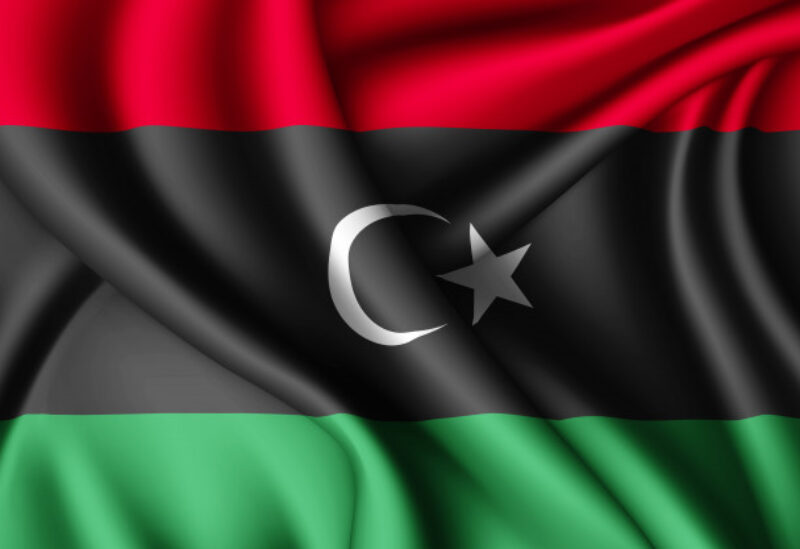
Libyan flag
Al-Mashri announced in a statement that he accuses active political forces, which he did not specify, of “making efforts to try to sabotage the upcoming elections because they are beneficiaries .
After confirming his refusal to complete the file of sovereign positions without settling the status of the military institution, Al-Mashri considered the constitutional rule as an alternative line, if the constitution was presented to the people and rejected, and he saw that a referendum on the constitution does not conflict with holding the elections on the specified date.
For his part, Field Marshal Khalifa Haftar, the commander-in-chief of the National Army, said that he met at his headquarters outside the city of Benghazi in the east of the country with a number of members of the House of Representatives.
In a statement distributed by his office, Haftar did not disclose the content of the talks that took place before the council resumed its meetings at its headquarters in the city of Tobruk (far east), with the aim of discussing the proposed budget of the Dabaiba government for the current year, which was rejected twice, against the background of ignoring the allocation of a specific budget to the army, within Other objections.
The meeting came at a time when differences escalated between the Speaker of Parliament, Aqila Saleh, and his first deputy, Fawzi Al-Nuwairi, who responded yesterday to a letter sent by Saleh to various government agencies, officially requesting that no law or correspondence issued by the parliament be taken into account without his signature.
Al-Nuwairi protested, in a letter leaked to the local media, that the council’s internal system stipulates that it will take a valid place in the event of his absence or inability to perform his duties.
Meanwhile, Abdel Hamid al-Dabaiba, head of the “unity” government, said that the state “will not be able alone to stop the phenomenon of illegal immigration.”
Yesterday, Musa Al-Koni, a member of the Presidential Council, was scheduled to hold a meeting with a number of local military leaders to study the security situation on the Libyan borders, and the requirements for strengthening and supporting the security forces in the border areas. Al-Koni told the European Union delegation, which he met the day before yesterday, that security control of the Libyan borders is “very possible in the event of obtaining international and European assistance and support, especially in the logistical and technical fields.”
In this context, a meeting held yesterday by officials of the military and security services of the “unity” government discussed securing the border strip with neighboring countries, and discussing the phenomenon of illegal immigration, coinciding with the request of the United Nations Mission in Libya again to start what it described as “the process of unifying military and security institutions.” Libya in order to enhance border security and counter the threat of terrorism and criminal activities.
The head of the mission, Jan Kubis, promised that the bombing incident, which was claimed by ISIS, and targeting a security point in southern Sabha “is a strong reminder that the high rate of movements of armed groups and terrorists only increases the risks of instability and security in Libya and the region.”
Yesterday, Italy and France joined the list of countries condemning the attack, and offered condolences to the families of the security officers “who paid the most expensive price while serving their country,” while France said, through its embassy in Libya, that the matter “requires unified Libyan security institutions, which have sovereignty over the entirety of the country.” the national territory to preserve it.” The statement pledged that the French state would continue to “support the Libyans who are working to build a safe and peaceful Libya, especially by organizing elections next December, and implementing the ceasefire agreement signed last year, along with all forces involved in the fight against terrorism in the country and in Coast region.
In turn, Dabaiba took advantage of his meeting yesterday evening in the capital, Tripoli, with Elva Johansson, the European Union Commissioner for Internal Affairs, and Jose Spadel, the European Union ambassador, to emphasize the need for what he described as serious cooperation in confronting the phenomenon of illegal immigration by the European Union and countries of origin, pointing out that The meeting discussed ways to support the government in confronting this phenomenon, human smuggling and the negative consequences resulting from it, such as the phenomenon of terrorism and organ trade. The meeting suggested, according to a statement distributed by Dabaiba’s office, the establishment of a real partnership and crisis management, “because migration is a sensitive issue that needs various different treatments, from establishing development projects in source countries, supporting the Libyan authorities with training programs for the members of the Migration Control Service, and developing the capabilities of the Libyan Coast Guard.”
According to Khaled Mazen, Minister of Interior in the Dabaiba government, the number of illegal immigrants rescued at sea this year reached about 10,000, compared to about 7,000 during the past year.